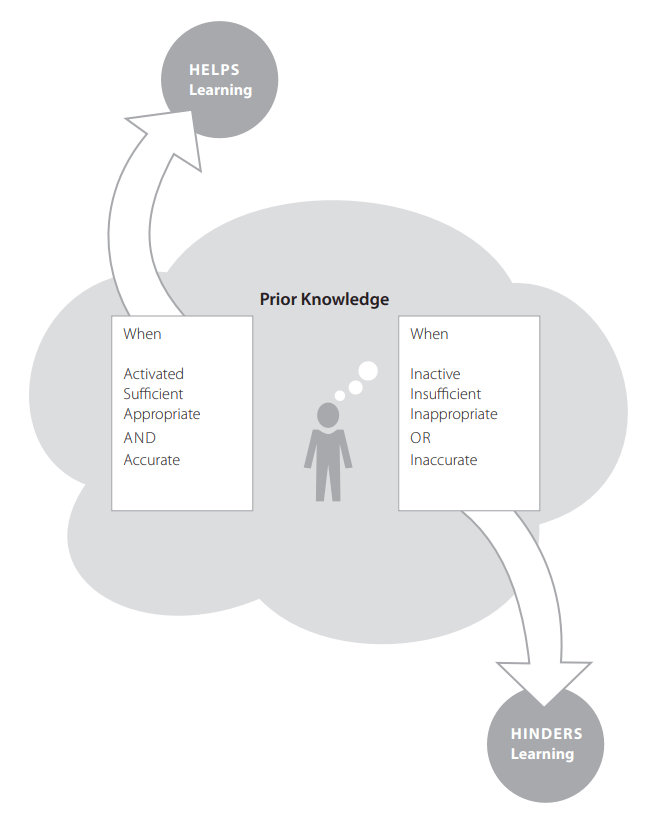In How Learning Works (2010), Ambrose and her colleagues noted:
Students’ prior knowledge can help or hinder learning.
There are a number of techniques that you can use to determine the prior knowledge that your students bring to your course.
BACKGROUND KNOWLEDGE PROBE – can use in the first week of class, or before introducing a new topic. Use the LMS quiz feature to prepare 2/3 open-ended, 5/6 short answer, or 10/20 multiple-choice questions that probe the students’ existing knowledge. Once all students have completed the online no-credit quiz, let the students know the results and how this will affect them as learners. A screencast is a great way of providing class-wide feedback.
KNOWLEDGE SURVEY – Similar to a Background Knowledge Probe, but the “correct answers” are replaced. In a knowledge survey, the students do not actually try to answer any of the questions provided. Instead, they rate (on a three point scale ) their confidence to answer the questions with their present knowledge. Students are directed to:
- Mark an “A” as response if you feel confident that you can now answer the question sufficiently for graded test purposes.
- Mark a “B” response to the question if you can now answer at least 50% of it or if you know precisely where you could quickly get the information needed and could return here in 20 minutes or less to provide a complete answer for graded test purposes.
- Mark a “C” as response to the question if you are not confident that you could adequately answer the question for graded test purposes at this time.
FOCUSED LISTING – use as a brainstorming technique to generate definitions/ descriptions of topics. Ask students in a wiki or discussion board forum to list words or phrases that describe a concept. This can be used to generate class discussion or it could lead to students forming groups to compare lists and form the best overall description of topic.
ANTICIPATION GUIDES – Kimberley Moran suggested (2017) that prior knowledge can help slide a student into the learning instead of creating a barrier. She noted that one should be careful though … just because a student already knows something doesn’t mean they know it correctly. One can use anticipation guides to help correct those misconceptions before asking students to build on that knowledge. It’s not cheating to get kids connected to what’s about to be learned, it’s intelligent teaching.
MISCONCEPTION/PRECONCEPTION CHECK – particularly useful in classes with controversial/sensitive issues. Select a handful of troublesome beliefs that are common and most likely to interfere with students’ learning, and create a simple questionnaire. Explain to your students the purpose and when they should expect to receive feedback.
